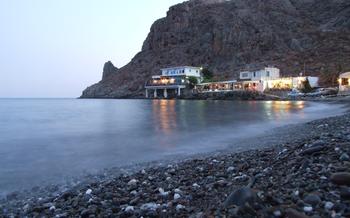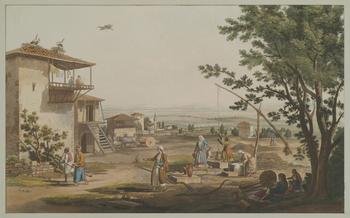
Rapsani Vineyards
- Rapsani Vineyards: A Journey Through Time and Tradition
- Exploring the Rich Terroir of Rapsani
- Grape Varieties: Unveiling the Essence of Rapsani Wines
- Signature Wines of Rapsani: A Symphony of Flavors
- Visiting the Wineries: A Multisensory Experience
- Rapsani Wine Festival: A Celebration of Harvest and Tradition
- Local Cuisine: A Culinary Journey to Complement Rapsani Wines
- Winemaking Techniques: Unveiling the Art of Rapsani Wines
- Accommodations: Finding Your Perfect Stay in Rapsani
- Transportation: Navigating Your Way to Rapsani
- Things to Do in Rapsani Beyond Wine Tasting
- History and Culture: Delving into Rapsani's Rich Heritage
- Budgeting for Your Trip: Planning a Cost-Effective Getaway
- Sustainable Travel: Treading Lightly in Rapsani
- Insider Tip: Discover the Hidden Gems of Rapsani
Rapsani Vineyards: A Journey Through Time and Tradition
Nestled amidst the rolling hills of Thessaly, Greece, the Rapsani vineyards stand as a testament to a rich winemaking legacy that spans centuries. The region's viticultural heritage dates back to ancient times, when Greek mythology tells of the god Dionysus introducing wine to the land. Over the centuries, Rapsani's vineyards have flourished, gaining renown for producing exceptional wines that embody the essence of Greek terroir.
Historical significance: Rapsani's winemaking tradition can be traced back to the 14th century, when Byzantine monks first cultivated grapes in the region. The area's favorable climate and soil conditions proved ideal for viticulture, and wine production soon became an integral part of the local economy.
Geographical location: Situated in the heart of Thessaly, Rapsani benefits from a unique geographical position that contributes to its winemaking success. The region's proximity to the Aegean Sea provides a moderating influence on the climate, while the surrounding mountains protect the vineyards from extreme weather conditions.
Winemaking heritage: Rapsani's winemaking heritage is deeply rooted in tradition. For generations, local families have passed down their knowledge and expertise from father to son, preserving centuries-old winemaking techniques that have been refined over time. This dedication to tradition has resulted in the creation of distinctive wines that showcase the unique character of the Rapsani terroir.
Must-visit wineries: To fully experience the essence of Rapsani's winemaking heritage, a visit to the region's wineries is a must. Some of the most renowned wineries include the Rapsani Wine Cooperative, Domaine Gerovassiliou, and Tsantali Winery, each offering a unique perspective on the region's winemaking traditions.
Exploring the Rich Terroir of Rapsani
The unique soil composition of the Rapsani region plays a crucial role in shaping the character of its wines. The soil is primarily composed of clay, limestone, and volcanic rock, providing excellent drainage and water retention. This combination allows the vines to develop deep root systems, extracting essential minerals and nutrients from the soil, resulting in wines with exceptional complexity and structure.
The favorable climate conditions of Rapsani further contribute to the region's winemaking success. The Mediterranean climate, with warm, dry summers and mild, wet winters, provides optimal conditions for grape cultivation. The cool nights and ample sunshine during the growing season allow the grapes to develop intense flavors and aromas while maintaining balanced acidity.
The influence on grape varieties is profound. The unique terroir of Rapsani favors specific grape varieties that thrive in these conditions. Indigenous varieties like Xinomavro and Stavroto, known for their distinctive characteristics, find their ideal home in Rapsani's vineyards. International varieties, such as Cabernet Sauvignon and Merlot, have also been successfully introduced, demonstrating the versatility of the region's terroir.
The resulting wine characteristics are a testament to the exceptional terroir of Rapsani. The wines produced here are typically full-bodied, with robust tannins, vibrant acidity, and a rich aromatic profile. The terroir imparts a distinct minerality to the wines, reflecting the unique composition of the soil. The wines of Rapsani are highly regarded for their aging potential, developing further complexity and elegance over time.
Grape Varieties: Unveiling the Essence of Rapsani Wines
The vineyards of Rapsani are home to a diverse array of grape varieties, each contributing its unique character to the region's acclaimed wines. Indigenous varieties, such as the Xinomavro and Stavroto, have deep roots in the local terroir and express the essence of Rapsani's winemaking heritage. Xinomavro, known for its high acidity and complex flavors, forms the backbone of many traditional Rapsani wines, while Stavroto, a rare and precious gem, imparts a distinctive floral aroma and elegance to the blends. International varieties, such as Cabernet Sauvignon and Merlot, have also found a place in Rapsani's vineyards, adding complexity and depth to the region's wines.
The blending of these diverse varieties is an art form practiced by Rapsani's skilled winemakers, who create harmonious and balanced wines that showcase the best of each grape. Traditional blends, such as the classic Xinomavro-Stavroto combination, are complemented by innovative blends that push the boundaries of flavor and complexity. The resulting wines are a testament to the diversity and quality of Rapsani's grape varieties, offering a captivating journey through the flavors and aromas of this unique wine region.
Signature Wines of Rapsani: A Symphony of Flavors
The Rapsani vineyards are home to a diverse range of grape varieties, each contributing its unique character to the region's wines. Among the most notable are the indigenous Xinomavro and Stavroto varieties, as well as the international Cabernet Sauvignon and Merlot.
Xinomavro, known as the "King of Greek Grapes," produces wines that are full-bodied, with high acidity and firm tannins. These wines are characterized by their intense aromas of red fruits, such as cherry and plum, and their complex flavors of spice, leather, and tobacco.
Stavroto, a rare and precious gem, is known for its deep ruby color and its elegant, fruity aromas. These wines are medium-bodied, with soft tannins and a well-balanced acidity. They offer flavors of red and black fruits, such as blackberry and raspberry, along with hints of earth and minerality.
Krasato, a blend of Xinomavro, Cabernet Sauvignon, and Merlot, showcases the best of both worlds. This wine combines the structure and complexity of Xinomavro with the fruitiness and elegance of the international varieties. The result is a harmonious and well-rounded wine with aromas of red and black fruits, spice, and a touch of oak.
In addition to these signature wines, Rapsani is also home to a variety of other notable wines, including Grenache Rouge, Syrah, and Viognier. These wines offer a wide range of flavors and styles, ensuring that there is something to suit every palate.
Visiting the Wineries: A Multisensory Experience
A visit to the wineries of Rapsani is a multisensory experience that immerses visitors in the region's rich winemaking traditions. To fully appreciate the essence of Rapsani wines, booking a tour and tasting session is highly recommended. Guided vineyard walks offer an intimate glimpse into the viticultural practices that shape the character of the wines. Exploring the barrel cellars provides a unique opportunity to witness the aging process and learn about the techniques used to create these exceptional wines. Pairing the wines with local delicacies elevates the experience, allowing visitors to savor the harmonious interplay of flavors between the wines and the region's traditional cuisine.
Rapsani Wine Festival: A Celebration of Harvest and Tradition
Held annually in August, the Rapsani Wine Festival is a vibrant celebration of the region's rich winemaking heritage. Over several days, the village comes alive with wine tasting, food, and music, attracting visitors from near and far.
During the festival, local wineries showcase their finest vintages, offering a chance to sample the region's signature wines. Alongside the wine, visitors can indulge in traditional Greek cuisine, with food stalls offering a variety of local delicacies.
The festival also features cultural performances, showcasing traditional Greek music and dance. These performances provide a glimpse into the region's rich cultural heritage, making the festival an immersive experience for visitors.
Insider tip: Plan your visit to Rapsani around the festival to immerse yourself in the local wine culture and experience the vibrant atmosphere of this annual celebration.
Local Cuisine: A Culinary Journey to Complement Rapsani Wines
The culinary scene in Rapsani is a harmonious blend of traditional Greek flavors and modern gastronomy. Local tavernas and restaurants offer a diverse range of dishes, each carefully crafted to complement the region's exceptional wines.
When pairing food with Rapsani wines, consider the following suggestions:
-
Xinomavro: Indulge in hearty dishes such as grilled meats, stews, and pasta with rich sauces. The wine's robust tannins and acidity will cut through the fattiness of the food, creating a harmonious balance.
-
Stavroto: This rare and precious wine pairs well with lighter fare, such as seafood, poultry, and fresh salads. Its delicate aromas and flavors will enhance the natural sweetness of these dishes without overpowering them.
-
Krasato: This versatile blend offers a wide range of pairing options, from traditional Greek meze platters to grilled vegetables and light pasta dishes. Its medium body and balanced acidity make it a food-friendly choice.
Beyond these signature wines, Rapsani offers a variety of other notable labels, each with its own unique character. Experiment with different pairings to discover your personal favorites.
Insider tip: When visiting wineries in Rapsani, don't hesitate to ask for recommendations on food pairings. The knowledgeable staff will be delighted to guide you towards the perfect culinary experience.
Winemaking Techniques: Unveiling the Art of Rapsani Wines
Rapsani winemakers have perfected a blend of traditional methods and modern techniques to create wines that are both authentic and innovative. Traditional practices, such as hand-harvesting grapes and using indigenous yeasts, are combined with modern technology to ensure consistent quality and control. Unique winemaking techniques, such as extended maceration and aging in oak barrels, contribute to the depth and complexity of Rapsani wines. These techniques not only enhance the wine's flavors and aromas but also preserve its unique character and identity.
By embracing a balance between tradition and innovation, Rapsani winemakers craft wines that showcase the region's rich terroir and heritage. The resulting wines are a testament to the skill, dedication, and passion of the winemakers who have dedicated their lives to preserving and promoting the art of winemaking in Rapsani.
Insider tip: Inquire about sustainable practices at the wineries you visit. Many Rapsani wineries are committed to minimizing their environmental impact by using renewable energy sources, reducing water consumption, and implementing organic farming methods.
Accommodations: Finding Your Perfect Stay in Rapsani
Whether you seek luxurious indulgence or the charm of a traditional guesthouse, Rapsani offers a range of accommodations to suit every traveler. Nestled amidst vineyards and rolling hills, these lodgings provide tranquility and convenience, ensuring a memorable stay.
Luxury hotels, such as the Rapsani Winery Hotel, offer elegant rooms, fine dining experiences, and stunning views overlooking the vineyards. For a more intimate experience, choose a charming guesthouse like the To Spiti tis Yiayias, which offers cozy rooms and personalized service.
To be in close proximity to the wineries and vineyards, consider staying at a winery guesthouse or bed and breakfast. Many wineries, such as the Tsantalis Winery, offer accommodations allowing guests to immerse themselves fully in the winemaking experience.
When booking your stay, consider the amenities and services that are important to you. Some accommodations offer swimming pools, spas, and fitness centers, while others provide cooking classes, wine tastings, and guided vineyard tours.
Insider tip: During peak season (May to September), book your accommodation well in advance to secure your preferred choice and take advantage of early booking discounts.
Transportation: Navigating Your Way to Rapsani
Reaching Rapsani from major cities in Greece is a breeze. Thessaloniki International Airport (SKG), the closest air hub, is a mere 60-kilometer drive away. From Athens, the capital of Greece, the journey takes approximately 5 hours by car or bus.
Renting a car is a popular option for those seeking flexibility and independence. The well-maintained roads make driving a pleasure, and the scenic countryside adds to the charm of the journey. Alternatively, public transportation offers a cost-effective and reliable means of reaching Rapsani. Buses depart from major cities and connect to the village, providing a comfortable and affordable travel experience.
Insider Tip: Consider renting a car for the ultimate freedom to explore Rapsani and its surroundings at your own pace. The flexibility to stop at picturesque villages along the way and soak in the breathtaking scenery is priceless.
Things to Do in Rapsani Beyond Wine Tasting
While wine tasting is undoubtedly the highlight of a visit to Rapsani, the region offers a wealth of other experiences to enrich your trip. Take some time to explore the picturesque village itself, with its traditional architecture, narrow cobblestone streets, and charming cafes. For outdoor enthusiasts, there are numerous hiking and biking trails that wind through the vineyards and surrounding countryside, offering breathtaking views and opportunities for spotting local flora and fauna.
History buffs will appreciate the nearby archaeological sites, including the ancient city of Demetrias and the medieval fortress of Platamonas. These sites offer a glimpse into the rich history of the region and provide a fascinating contrast to the modern-day vineyards.
To truly immerse yourself in the local culture, be sure to attend one of the many festivals and events held throughout the year. These celebrations showcase traditional music, dance, food, and wine, offering a unique opportunity to interact with the locals and experience the vibrant spirit of Rapsani.
One insider tip is to venture off the beaten path and discover the hidden gems of the region. Ask locals for recommendations on lesser-known wineries, secluded hiking trails, and authentic culinary experiences. These hidden gems often provide the most memorable and rewarding moments during your trip to Rapsani.
History and Culture: Delving into Rapsani's Rich Heritage
Rapsani's history is a tapestry woven with ancient threads and Byzantine and Ottoman influences. Archaeological discoveries, including ruins of an ancient theater and Roman baths, hint at a rich past that predates the modern era. The village's Byzantine heritage is reflected in its churches, such as the Church of Agios Georgios, which features exquisite frescoes depicting scenes from the Bible. During the Ottoman period, Rapsani was a hub of trade and commerce, and its architecture still bears the imprint of this era, with traditional stone houses lining the narrow streets.
Beyond its tangible heritage, Rapsani is also steeped in local traditions and festivals that celebrate its unique identity. The annual wine festival, held in August, is a vibrant showcase of the village's winemaking heritage, featuring wine tastings, traditional music, and cultural performances. Engaging with the locals is a rewarding way to learn about their stories and gain insights into the village's rich cultural fabric.
Budgeting for Your Trip: Planning a Cost-Effective Getaway
Visiting Rapsani doesn't have to break the bank. With careful planning, you can enjoy a memorable trip without exceeding your budget. Accommodation options range from budget-friendly guesthouses to mid-range hotels and luxurious resorts. Opt for guesthouses or smaller hotels for a more affordable stay. Dining options are plentiful, with traditional tavernas offering delicious Greek cuisine at reasonable prices. Look for family-run restaurants or tavernas for an authentic and budget-friendly experience. Take advantage of free activities and attractions such as exploring the picturesque village, hiking or biking through the vineyards, and visiting nearby historical sites. Plan your trip during the off-season (typically November to April) to take advantage of discounts on accommodation, tours, and tastings. With a little research and planning, you can easily create a cost-effective itinerary for your Rapsani adventure.
Sustainable Travel: Treading Lightly in Rapsani
As a traveler, it is essential to be mindful of the impact we have on the environment and the communities we visit. Rapsani is committed to sustainable tourism practices, and there are many ways you can contribute to preserving its natural beauty and cultural heritage.
-
Eco-friendly wineries and accommodations: Opt for wineries and hotels that prioritize sustainability. Look for certifications like "Green Key" or "Sustainable Tourism." These establishments often use renewable energy sources, implement water conservation measures, and reduce waste.
-
Responsible tourism practices: Respect the local environment by avoiding littering, using reusable water bottles, and conserving energy. Support local businesses that use sustainable practices, such as organic farming and fair trade.
-
Minimizing environmental impact: When exploring the vineyards, stay on designated trails to prevent soil erosion and damage to the vines. Respect the wildlife and avoid disturbing their habitats. Consider carpooling or using public transportation to reduce your carbon footprint.
-
Insider tip: Embrace the local culture by opting for local and organic products. This supports the local economy and reduces the environmental impact associated with transportation and packaging. Ask for recommendations at wineries and restaurants to discover hidden gems that showcase the region's culinary heritage.
Insider Tip: Discover the Hidden Gems of Rapsani
Beyond the well-known wineries and attractions, Rapsani offers a treasure trove of hidden gems waiting to be discovered. For photography enthusiasts, secret viewpoints scattered throughout the vineyards provide breathtaking panoramas of the rolling hills and picturesque village.
For those seeking unique wine experiences, venture off the beaten path to discover lesser-known wineries. These hidden gems often offer intimate tastings, personalized tours, and the chance to meet the passionate winemakers behind the scenes.
Rapsani is also home to local festivals and events that showcase the region's rich culture and traditions. Immerse yourself in the vibrant atmosphere of these celebrations, where you can enjoy traditional music, dance, and local delicacies.
To uncover these hidden gems, engage with locals and ask for their recommendations. They can point you towards secret spots, off-the-menu dishes, and unique experiences that will make your trip to Rapsani truly unforgettable.








